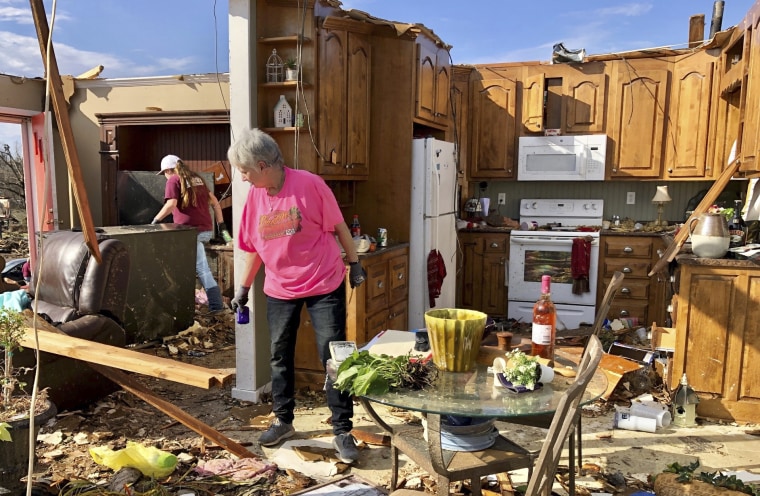After natural disasters hit, white survivors and those with higher incomes are often more likely to receive help from the Federal Emergency Management Agency, studies and reports show.
The disparities are the target of legislation introduced Thursday to make FEMA’s disaster response more equitable. The bill, sponsored by House Homeland Security Committee Chairman Bennie Thompson, D-Miss., and Sen. Elizabeth Warren, D-Mass., would require FEMA to center equity in its programs and change the way it collects data to flag and fix disparities.
The bill would also require the Government Accountability Office to review whether the criteria FEMA uses to consider states’ requests for help affect “equity for underserved communities.”
The legislation follows an NBC News analysis in March showing that the federal government was less likely to grant aid through FEMA’s Individuals and Households Program following storms with highly localized damage. From fall 2018 to fall 2021, the federal government rejected nearly 40 percent of states’ requests for assistance from the program, which helps people whose homes have been damaged in disasters, NBC News found. Residents lacking insurance coverage and communities with high poverty rates were particularly affected by the lack of assistance.

“Whether you receive assistance after a disaster shouldn’t depend on your zip code or background,” Thompson, whose district spanning the Mississippi Delta is one of the poorest regions in the country, said in a statement. “It’s past time that the Federal government — and particularly the Federal Emergency Management Agency — makes disaster assistance equity a real priority to reduce barriers to recovery.”
The legislation, which has three Democratic co-sponsors, two in the Senate, one in the House, also follows reporting about how often FEMA tells applicants they are ineligible for assistance and how wealthier homeowners and renters have better chances of receiving more aid than the poorest ones.
A spokesperson said FEMA does not comment on legislation but said in a statement that “FEMA remains laser-focused on ensuring equity is at the center of our work to better serve survivors.”
Last year, FEMA changed a policy that put homeowners without certain paperwork, particularly Black applicants in the Deep South lacking deeds, at a disadvantage.
But Thompson and Warren say more action is needed.
“For too long, frontline communities have been disproportionately impacted by the devastating effects of natural disasters, and this injustice is exacerbated by the distribution of relief,” Warren said in a statement. “We must work towards achieving greater equity in FEMA’s disaster response."
The legislation would also allow local governments affected by disasters to request aid directly from FEMA in some circumstances. Currently, under the Stafford Act, governors have the final say in requesting major disaster declarations, which can help residents begin to rebuild their homes. Advocates say the rule can hamstring communities’ recovery when governors decide not to apply.
Thompson previously rebuked a decision by Mississippi officials not to seek federal aid after a multiday deluge in the summer of 2021 dumped up to 14 inches of rain across pockets of the Mississippi Delta. The state Emergency Management Agency said the disaster was likely too small to qualify for help. Town and county governments had no way to access federal assistance without the state’s backing.
